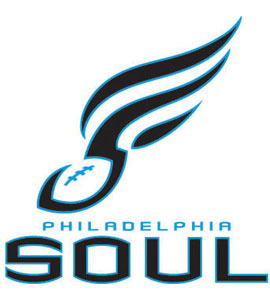EAGLES TRAINING CAMP FRIDAY JULY 28, 2017: EAGLES DEFENSIVE COORDINATOR JIM SCHWARTZ PRESS CONFERENCE
Staff report
 Jim Schwartz
philadelphiaeagles.com
Jim Schwartz
philadelphiaeagles.com EAGLES DEFENSIVE COORDINATOR JIM SCHWARTZ
Press Conference Transcript
July 28, 2017
Q. How has the way you evaluate linebackers changed over the years with guys like Eagles RB Donnel Pumphrey, Eagles RB Darren Sproles, you even have Carolina Panthers RB Christian McCaffrey on your schedule this year?
JIM SCHWARTZ: That’s a good point. It’s not just those guys. It’s not just the running backs that are threats in the pass game, but it’s also the proliferation of the wide receiver tight end. You know, those guys. You know, it’s just, it puts an emphasis on multi-dimension on players. It’s hard to be a one-trick pony in the NFL. It’s hard to be a run stopper. You don’t control whether it’s a run or a pass, so you have to be a multi-dimensional player on defense.
Q. When guys like CB Jalen Mills and CB Rasul Douglas, your young corners, are going up this year against veterans, like WR Alshon Jeffery and WR Torrey Smith, as opposed to last year, can you see a faster development from them because of who they’re going up every day against?
JIM SCHWARTZ: I don’t know. I think the competition helps them. Whether it helps them to develop quicker, I don’t know. But I know that competition is going to bring out the best in them. If they make a mistake in technique, it will show. You can’t cover it up against a veteran player. So I think that’s probably the biggest part of that equation.
Q. Was that part of the thought process, drafting those hybrid players that you mentioned, you think about Arizona Cardinals LB Deon Buchanan, Los Angeles Rams LB Mark Barron, guys who were safeties?
JIM SCHWARTZ: We have a guy like that here also in [LB] Kamu [Grugier-Hill]. He was a safety at Eastern Illinois and he’s got some hybrid abilities to him. As much as the run game is important, match-ups in the pass game are extremely important. I don’t think you have to look farther than the Super Bowl to see that, how many catches — I think was it [Patriots RB] James White, he had like a million catches. Your ability to have guys that can match that up is an important thing. Like I said, defensively, we can call defenses, but we don’t control whether it’s a run or pass. And the thing is, really, now, even the offensive coordinator doesn’t control if it’s a run or a pass, because there are so many built in RPOs, that if there are bad looks, they can have a run called. If it’s a bad look to run into, they’re ripping the ball out somewhere. So it forces you to defend the entire width of the field defensively and makes match-ups even that much more important.
Q. Was the scheme shift, in retrospect, with DE Marcus Smith, more of an issue for a guy who was drafted for a 3-4 when you look back upon why it didn’t work here?
JIM SCHWARTZ: Yeah, I think the biggest thing in not working out, as far as this year, is the other acquisitions that we made, you know, and where we were. And it really sort of put us up against, ‘How are we going to get reps for all these guys?’ We do like a good, young player in the pipeline in [DE] Alex McCalister. [We] had drafted, obviously drafted [DE] Derek [Barnett], and brought in [DE] Chris [Long]. You know, so that made it difficult. You know, he played some good football last year for us. He got a sack on [Dallas Cowboys T] Tyron Smith on the third play of the Dallas game that was a good sack. We just, you know, I think it just got to the point that there are only so many reps at practice, so many reps in training camp, and we devoted those to the guys that we brought in, plus the other guys that we’ve had.
Q. The linebackers stayed mostly healthy last season. What are you looking for from those young guys on the second and third string during these next two weeks?
JIM SCHWARTZ: Yeah, you know, I don’t want to speak for [Eagles special teams coordinator Dave] Fipp, but obviously special teams is a big part of that equation. Probably about, I don’t know, league wide 65, 70 percent of the game is played out of three wide receivers now. There are some games — we played the Giants, there were three wide receivers the entire game, including third-and-one and goal line. So that third linebacker that might not be getting the base snaps that he used to get has to bring something to the party, and a lot of times that’s special teams. Those young guys, they got to find a way to be productive in that. Plus, the other thing that happens, as far as substitution goes, a lot of these teams, and I’ll mention the Giants again, they make it very difficult to sub, because they’re up on the ball every snap. If you try to sub, they’re going to snap the ball and you are going to get caught with too many guys on the field.
You know, the linebacker position has changed, and it’s changed because of what the offense is presenting to us.
Q. You were talking about DT Tim Jernigan the other day and the impact he could potentially have on this defense. He’s a guy that never really played in this type of defense, an attack defense. How do you project with a guy like that when you looked at Tim?
JIM SCHWARTZ: You can see — on third down pretty much everybody does attack. Everybody’s in a pass-rush mode. It’s just that a lot of times they’re not doing it on first-and ten or second-and-six, those kind of things. So everything that we needed to see from him, he had done at some point in his NFL career.
Q. Why was S Terrence Brooks so late in the process last year? Where is he now in terms of learning the defense, and could he actually get some playing time?
JIM SCHWARTZ: You’ve been around the OTAs, and even yesterday he’s been around the football. Sometimes that’s hard to quantify guys that can just be around the football. But he was behind it a little bit last year. Also having a couple of experienced safeties, you know. It’s tough to catch up in all of training camp and three days before the regular season. But he was making progress. We had a package at the end of the year that he got out there and he started — even though he wasn’t on the field, he started gaining ground as the season went on. But it’s been a world of difference for him. I think you could probably ask him, but you just see from the first day he was here, going through all those meetings, and sometimes those Phase One meetings can be really tedious, and maybe for [S] Malcolm Jenkins or [S] Rodney [McLeod], maybe that’s the case. But for Terrence, that was an important time for him. He took advantage of all of it.
Q. Why do you like DE Vinny Curry at left tackle?
JIM SCHWARTZ: You know, all our guys played both sides. But he’s a strong player, and he’s, you know, maybe a little bit bigger than some. He’s got a good inside move and knows a lot of times sort of, you know, match-up well against some left tackles. But, you know, when you watch our guys, you’ll see [DE] Brandon [Graham] switch sides, you’ll see all those guys switch sides. I think that’s important to do as we go forward.
Q. How difficult is it going to be for DE Derek Barnett to probably face a lot of (good offensive linemen) this season?
JIM SCHWARTZ: That’s a good match-up right off the bat. We talked about the wide receivers in the corners. That’s going to make it better. You know, it’s going to come. I mean, offensive linemen in the NFL are much better than college offensive linemen. Quarterbacks are better. They get rid of the ball quicker. You know, all that stuff — he’s going to have the challenge of meeting each of those challenges. Wow, that’s a bad way to say it, ‘The challenge of meeting the challenge.’ He’s going to have the duty to meet every challenge that comes along. He’s been up for it so far. He had a really good rush against JP [T Jason Peters] yesterday. Now maybe one out of four, but it still was, you know, it still was there, and we’re excited about it.
Q. How similar is what DE Chris Long doing here to what he did with the Los Angeles Rams? And has that helped him adjust to the defense?
JIM SCHWARTZ: Yeah, it’s more similar to [the Rams] then what he did with New England last year. And there is nothing that we’re asking him to do that he already hasn’t done. And that’s what happens a lot of times with veteran players, it’s more just learning new terminology. They’ve already worked all the techniques. Even a guy like [CB] Patrick Robinson. He’s worked every technique that we work. Now it’s just, ‘Okay, they call it ‘this’, I used to call it ‘this’.’ Those guys catch up pretty quickly. Chris is a veteran player. He’s another guy that’s around the quarterback an awful lot.
Q. When you watch what your defense is able to do against the offense, and you see them putting Pumphrey on the field a lot in different ways, can you see or envision how difficult of a match-up he might be for defensive players?
JIM SCHWARTZ: Yeah, it makes you — the package that they’re using ends up being something that a lot of times we match nickel against. You know, you just treat him like he’s the third wide receiver. There have been a lot of those guys in the past. You know, you go in the way-back machine, [former NFL RB] Marshall Faulk you had to treat like he was a wide receiver. If you lined up in the back field, you had to defend the run, but you had to treat him like he was a wide receiver, and it puts some stress on the defense. The biggest part of that stress is not what you’re seeing in the pass game, because if you match up defensively with nickel, you’re okay. Now it’s your ability to run the ball when teams are matching it that way, or if teams stay base and defend the run harder, then your ability to exploit things in the passing game — like I said, it falls down to multi-dimensional players on defense. We see what personnel groups are running out. We don’t know if it’s going to be a run or pass. And we have to be able to defend both of them, and it puts more of an emphasis on multi-dimensional players.












